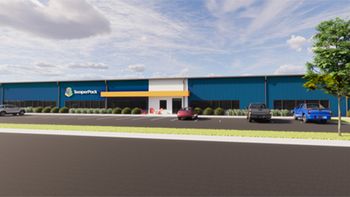
Astellas to Open New Life Sciences Facility in Cambridge
The company will occupy approximately 62,000 square feet of the new building.
Astellas Pharma Inc. plans to open a new state-of-the-art life sciences facility in the Cambridge Crossing (CX) neighborhood in Cambridge, MA, establishing its presence in one of the life science innovation hubs.
Designed by Ennead and Jacobs Consulting, 441 Morgan (named after the address) is the fifth lab-ready building at CX. When complete, it will offer five outdoor terraces, direct access to a five-acre park, integrated building technologies, including smart technology View Glass, three underground levels of parking, and a bike room.
The company expects to occupy two floors, or approximately 62,000 square feet, of the new facility in 2024. Astellas will house both laboratory and office areas. The laboratory area will be occupied by Discovery Accelerator, which will serve as an additional incubator space for external collaborators as well as Mitobridge. A few hundred Boston-based Astellas employees are expected to operate out of the new building, representing functions including medical & development, business development, and research.
In regard to sustainability and reducing environmental impact, the building is targeting LEED Gold. The building is also targeting WiredScore Platinum certifications and is situated just steps to two MBTA lines, including the Community College orange line station and the Lechmere green line station.
"This investment in Cambridge represents a significant milestone for Astellas, enabling us to continue growing our presence in the Greater Boston area and to create additional hubs for innovation and collaboration,” says Tadaaki Taniguchi, MD, PhD, chief medical officer, Astellas. “We view this as a strategic approach to enhance our ways of working, foster new collaborations and open up new opportunities in the biopharma ecosystem. We look forward to leveraging the vibrant life sciences ecosystem in the area to drive scientific advancements that ultimately lead to better outcomes for patients."
Newsletter
Stay ahead in the life sciences industry with Pharmaceutical Commerce, the latest news, trends, and strategies in drug distribution, commercialization, and market access.



